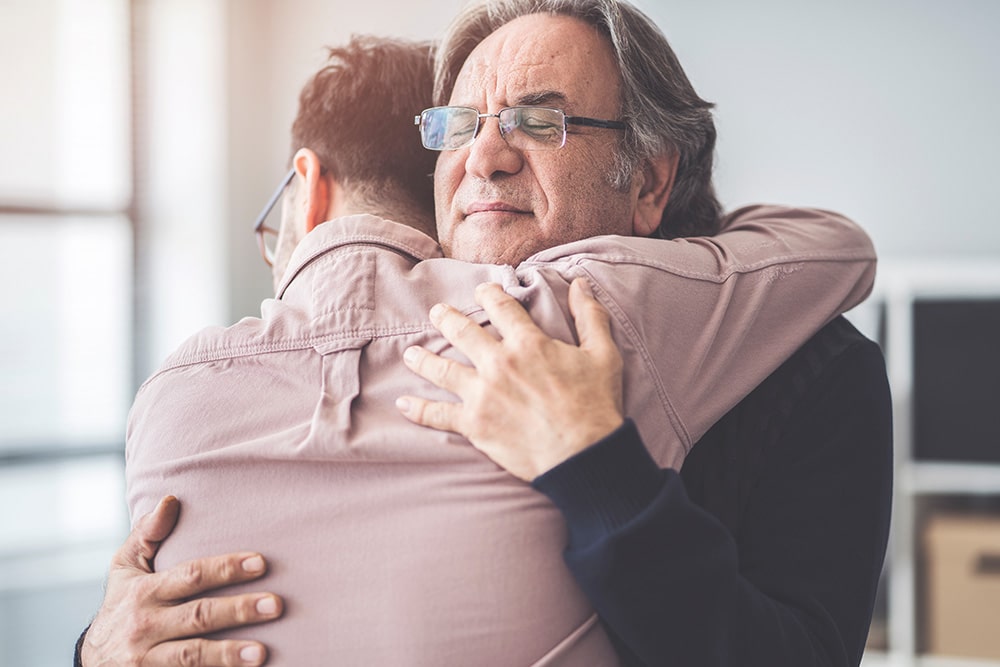Watching someone struggle with opioid addiction can leave you feeling helpless. You might lie awake at night wondering if there is a way to help them regain control of their life without judgment.
Crossroads Treatment Centers knows how heavy that responsibility feels. Let us talk about what a Suboxone clinic does, how it works and whether it could be the right step for your loved one.
What Is a Suboxone Clinic?
A Suboxone clinic specializes in medication-based recovery support for opioid addiction. Suboxone is an FDA-approved medication that reduces cravings and withdrawal symptoms. This makes it easier for someone to focus on recovery.
Unlike older treatments, its prescription happens in an outpatient setting. This way, your loved one can still work, attend school or care for the family while getting help.
Crossroads uses Suboxone as part of a broader treatment plan. We combine it with counseling and care coordination to address the root causes of addiction. This approach aligns with guidelines from the National Institutes of Health, which call medication-based recovery support the “gold standard” for opioid use disorder care.
Our commitment to quality is why we earned a three-year CARF accreditation, the highest recognition for addiction treatment programs. CARF reviewers highlighted our transparency, teamwork and evidence-based methods. This means your loved one receives care that meets national standards.
How Suboxone Works to Support Recovery
Suboxone is made up of two key ingredients: Buprenorphine and Naloxone. Buprenorphine helps stabilize brain chemistry by attaching to the same receptors as opioids, easing withdrawal and cravings. Naloxone serves as a safeguard, preventing misuse by blocking the effects of opioids.
This treatment gives people the stability needed to focus on recovery. It is a medical tool, not a replacement for one substance with another. At Crossroads, our providers work closely with patients to adjust doses as needed. We guarantee the medication fits their unique situation.
How to Know If a Suboxone Clinic Fits Your Loved One’s Needs
Choosing the right treatment can feel overwhelming. You may have concerns about stigma, cost or whether your loved one is truly ready for recovery. Here are three signs that a Suboxone clinic might be the right choice:
If they tried quitting before but relapsed, withdrawal symptoms might have been too intense. Suboxone eases those symptoms, giving them a steadier path forward.
Flexibility is another key factor. Outpatient care allows them to keep daily routines while attending therapy and medical appointments. Our CARF-accredited programs meet strict quality standards. Therefore, you can trust the treatment is backed by research and expertise.
Crossroads has over 100 clinics across nine states, each staffed by doctors and nurse practitioners who specialize in opioid addiction.

What Makes Crossroads Different?
Clinics vary in how they provide care, and at Crossroads, we focus on making treatment accessible and effective from the start.
Our Instant Intake® service allows patients to schedule same-day or virtual appointments. This approach helps prevent the long wait times that can be a barrier to care. We also offer bridge prescriptions to cover gaps between the first consultation and in-person visits.
We work with most major insurance providers, including Medicaid, Medicare and TRICARE. For those without insurance, self-pay options and grants are available. Cost should never block access to lifesaving care.
The Role of Counseling in Recovery
Medication alone is not enough. Addiction often stems from deeper issues like trauma, anxiety or strained relationships. That is why Crossroads works with counselors and peer support specialists, many of whom are in recovery. Together, they build skills to manage triggers, repair relationships and stay motivated.
Addressing Common Concerns About Suboxone
You might wonder if Suboxone replaces one drug with another. The answer is no. Suboxone is carefully monitored and tapered over time as recovery progresses, if that is the right treatment course for the patient. Unlike opioids, it does not create a “high,” allowing people to stay clear-headed while rebuilding their lives.
Others worry about long-term use. At Crossroads, we create personalized plans that evolve with each patient. Some stay on Suboxone for years; others transition off sooner. There is no one-size-fits-all timeline. We adjust based on what works for the individual.
Taking the First Step
If you are considering a Suboxone clinic, start by talking openly with your loved one. Avoid ultimatums; instead, share what you have learned about medication-based recovery support and ask how they feel about trying it. Many people fear judgment, so emphasize that recovery is a process, not a single decision.
Crossroads makes starting simple. You can visit our opioid use disorder treatment page to know more about our approach.
Choosing a Suboxone clinic is a big decision, but you don’t have to make it alone. Crossroads has helped over 300,000 people rebuild their lives through flexible, evidence-based care. If your loved one is ready to take control of their addiction, we are here to help them begin.
